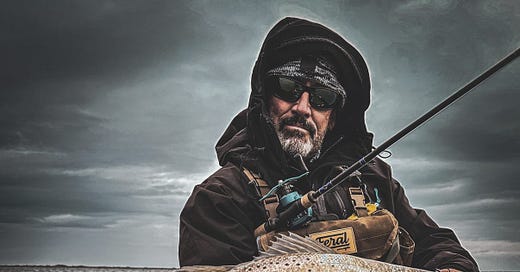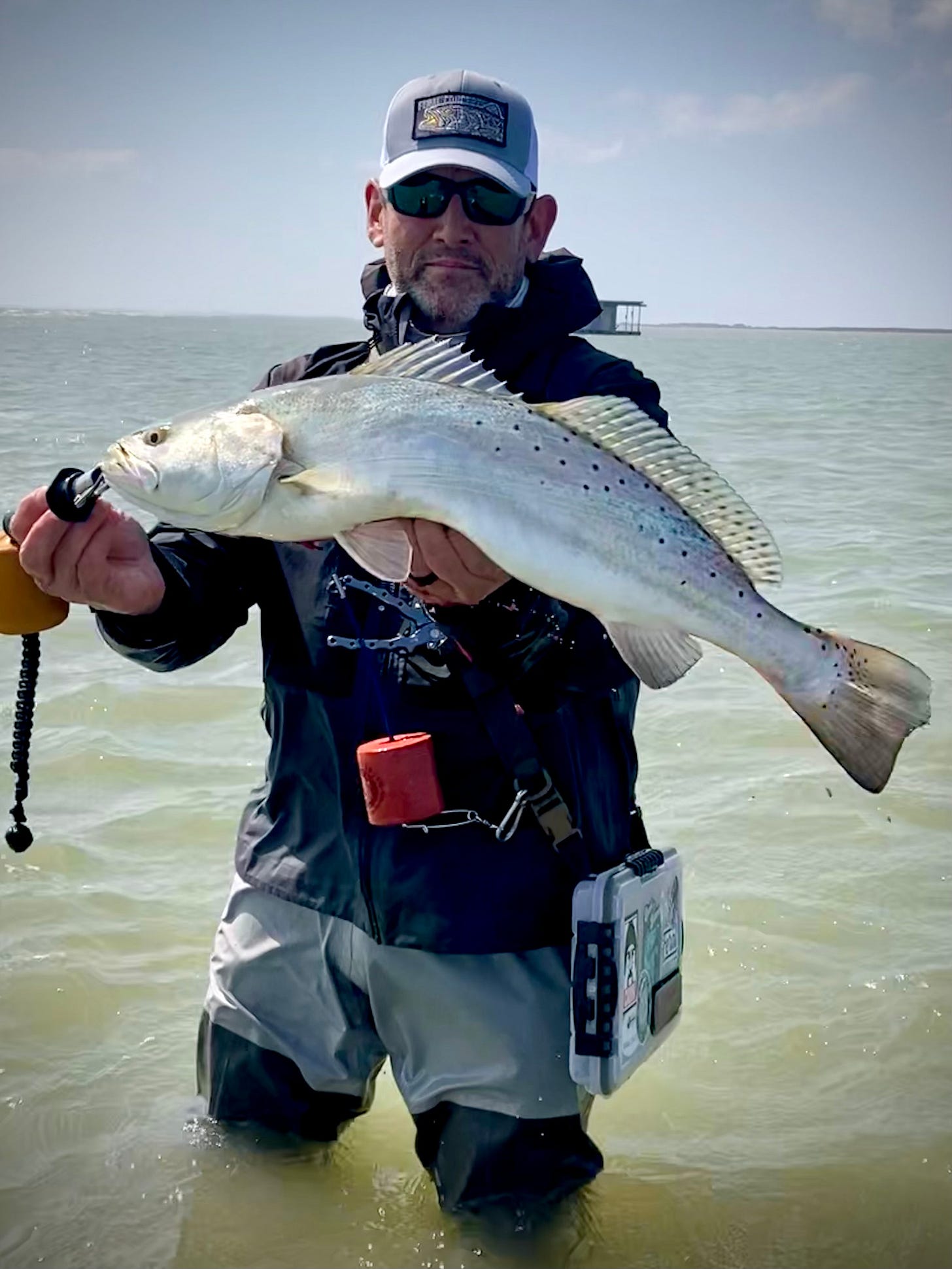Thoughts from a Vetrepreneur: Darren Jones of Feral Concepts
Vet·tre·pre·neur(vettrəprəˌno͝or): a military veteran who organizes and operates a business or businesses, taking on greater than normal financial and personal risks to do so.
Darren Jones is the real deal in the outdoor space. After Marine Corps service in Iraq and private security in Afghanistan, he joined the outdoor industry in a host of roles. His combination of real-world experience and industry insider know-how led him to create his own high-end hunting and fishing equipment business, Feral Concepts. I've used his gear fishing and hunting under challenging circumstances, and it always comes through. How he got to this point is both interesting and educational. Take a look.
-Russell Worth Parker, Editor in Chief, Lethal Minds Journal
Who are you, what is your military service background, what is your business, and why/how did it come to be?
My name is Darren Jones. I am a retired Marine Corps Major. I worked in Afghanistan and Iraq as a Department of State contractor post-Marine Corps, then transitioned to the civilian side in 2012, starting off in the outdoor industry doing business development and marketing at TrackingPoint, then to SilencerCo. Post SilencerCo, I worked as a consultant for other suppressor, night vision, and thermal companies in business development, marketing, and public relations roles. My business now is Feral Concepts, American-made soft goods (sewing) for fishing and hunting. I am also a partner in Amphibious Waterfowl, making chest rigs for waterfowl and turkey hunting.
What did you know about business generally, and yours specifically, before starting one?
Not a lot! I had a basic background in business from working in the outdoor industry. However, working for and owning are two very different things when the money is yours! I saw the need for quality, and that if you build quality, you build loyalty. I paid attention to customer service, and that people want to buy the best that they can afford. They want it to last, and if it breaks, they want it repaired. Learn the basics and move from there. Whether inventory management, shipping, material costs, or anything else, there is nothing like OJT. Learning while doing cements it into your brain.
Can you talk about building Feral Concepts and making it go?
I remember going into the rigger’s shop on ship in 2003 and being enamored with an idea or a concept and turning into a useful piece of gear, one that your life might even depend upon. We were modifying gear because the government-issued stuff was one-size-fits-all and it wasn’t up to the task. We knew we would be in combat, so we went to work. We needed dump pouches (not a common thing in 2003), modifications to our ALICE packs, et cetera. That lit the fire for me.
I started Feral because I saw a need for quality gear. I wade fish and duck hunt on the Texas coast. We have hyper-salinated water, and it literally eats gear. I bought a sewing machine out of curiosity and to see if I could repair my own gear. Applying the old Recon mantra, “two is one, one is none,” to stitching and reinforcing areas that break, it was ugly, but it held up.
My friends who are guides, Sally Black and Justin Brodnax, asked me to repair and or make gear for them. I took a chance and made them wade box straps and bags to use. They kept giving them to clients and urged me to start a business making wade fishing gear because it held up. At that time, I was working a full-time job with 80% travel. It was more of a thing to do to keep me connected and busy. In 2019, I was supplying guides and friends, it was more than just fun but actual work! At the urging of my family and friends, I started a website selling wader boxes for wade fishing. Fast forward six years, and I have a recognizable brand that is now my full-time job that supports 19 independent retailers with Feral Concepts gear.
Networking is vitally important. During my time working for some of the biggest brands in the outdoor space, I accrued a healthy number of contacts. Networking is exactly what it sounds like: Build a network of people who you can reach out to and ask questions. If they do not know, they probably know someone who does. I call on my network every day. If I don’t have the answer, someone else might be able to help, and usually does.
What would you do differently?
I would learn more about finance and what help you can get financially from available veteran and federal sources. There are many out there loaning money, some are good, some are not. Nothing is free.
I had a basic plan, looking back I should have been more detailed in my business plan and had a disinterested party look it over and blow holes in it. Most importantly, I should have started this ten or more years ago. We always let life get in the way and say, “I’ll start this when *insert reason*,”…the kids are out of school, the mortgage is paid off, and so forth. Life in general is distracting. Don’t act impulsively, but don’t languish and pipe dream, or you’ll wake up one day and it's just a memory. If you want to do it, then get moving.
What has been your biggest challenge thus far?
Sourcing quality manufacturing in the United States, competing against cheap foreign-made gear and understanding financing because borrowing money is scary. You have to pay it back! It took me several years to find good manufacturers who were reliable and also produced quality-made gear. The marketplace is competitive; it takes a lot of energy and work to stay focused and one step ahead.
What have you learned about yourself in the process of building a business?
I liken it to fighting for the first time. You don’t know what you don’t know. You take hits, but you also find out that you can take a hit and keep moving. You are tougher than you think. You learn to trust your instincts and that not everyone out there is your friend or plays on a level field, because the field is absolutely not level. You learn not to fall in love with the plan because it will change, and you have to adapt. The biggest thing is to believe in what you’re doing and have faith in the process. Sounds cliché, but it's true. Put in the work, be honest with yourself, listen to the right people, and take a measured risk. Be very wary of the WYODs (what you oughtta do’s) that have no skin in the game or that have never run their own business. They dont know shit and are spitballing ideas without thinking the cost, the time, or the viability. Ideas are great, creativity and discovery are important, but temper them with, “What will it cost?”, “Where will it get me?”, and “Is it worth it?” One, if not the most important, element to success is having your circle behind you. My wife and my family have been 100% supportive and believe I can do it. When I am doubtful, I remind myself of how fortunate I am.
What lessons you learned in service have helped you as a business owner?
Being a jack of all trades, reading people, and knowing their strengths and weaknesses. Not everyone is a rock star, especially me! Find the strength in every person and key on the strengths. Surround yourself with smart, good people whom you can trust. Mentors and friends who will be honest and shoot you straight are invaluable. Mission accomplishment mindset and fortitude: There is no time clock or official business hours; this is not a side hustle, it's how you provide for yourself and your family. Treat every day like it's your job, because it is.
What advice do you have for aspiring Vetrepreneurs?
● Find a mentor
● Do something that you care about that makes money and lights your fire!
● Always be a student, the word expert should scare the shit out of you.
● If you don’t know, ask questions. Most business owners I have met will help you if you are honest with them and ask questions.
● You don’t know what you don’t know. Saying “I dont know” is not a weakness. Research, Learn, and Execute.
● Pay it forward and it will be paid back tenfold.
What have I not asked that I should have?
Mentorship. We all have mentors in the game. We had them in the military: that sage old Gunny who knew a lot and sat you down as a boot Lieutenant and guided you on the right path, or a fantastic senior officer who cared enough to sit you down and explain it. The writer or photographer who cared enough to look at your work and be honest with you, and gave good advice. For example, TAB Gear makes some of the best shooting accessories on the market. Tony Burkes took the time to look at what I was doing and gave me honest feedback and encouragement to go for it! Ask the mentorship question.

How can people find you?
Instagram and Facebook: @FERALCONCEPTS
email: feralconceptsllc@gmail.com
If you're a Vetrepreneur who wants to be featured, or know one who you think should be, email us at Lethalmindsjournal.submissions@gmail.com and put VETREPRENEUR in the subject line. We are here to support you!





